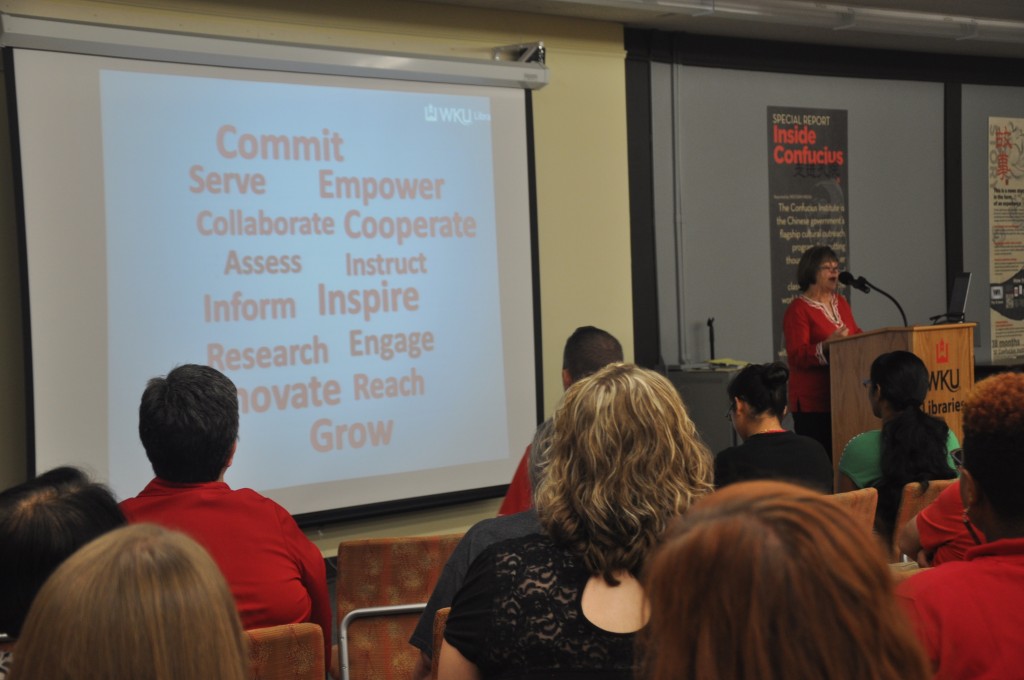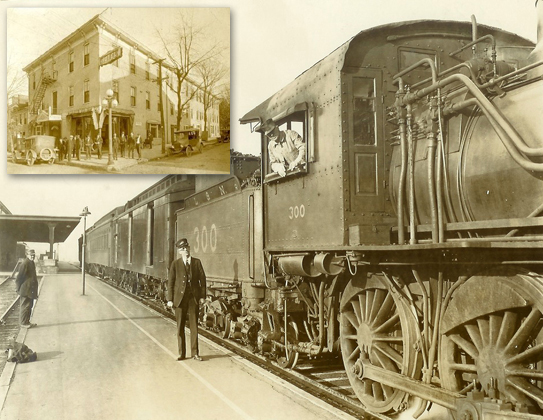 WKU Libraries held staff, faculty, and library-all kick off meetings met Wednesday, August 19 in Helm 100. Dean Connie Foster welcomed and gave a brief presentation, charting the library course for the upcoming academic year. New faculty and staff were introduced. Glenda White, Dean’s Office coordinator, handed out numerous door prizes to everyone throughout the day.
WKU Libraries held staff, faculty, and library-all kick off meetings met Wednesday, August 19 in Helm 100. Dean Connie Foster welcomed and gave a brief presentation, charting the library course for the upcoming academic year. New faculty and staff were introduced. Glenda White, Dean’s Office coordinator, handed out numerous door prizes to everyone throughout the day.
Daily Archives: August 27, 2015
WKU Libraries kicks off the 2015-16 Academic Year
Comments Off on WKU Libraries kicks off the 2015-16 Academic Year
Filed under Uncategorized
A Railroad Man
Edwin “Ed” Tanksley (1898-1975) joined the Louisville & Nashville Railroad in 1925. By the time he retired in 1960, he had witnessed many changes in the railroad industry and its significance for his home city of Bowling Green, Kentucky. The transcript of a 1967 interview in which Tanksley talks about his long career is part of the Manuscripts & Folklife Archives collections of WKU’s Department of Library Special Collections.
As a clerk and then a yardman, Tanksley became closely acquainted with the mechanics of train operation and the skill of his fellow workers. There was Smith Wood, “one of the grandest men you ever saw handle a throttle,” able to “tool those big steam engines around these bends in the track and not spill a drop of coffee.” There was engineer “Grandma” Garr, known for his love of buttermilk, and John “Dink” Petty, a wizard on the air brakes who could give his crew in the caboose a whiplash-free ride. Their jobs could be stressful: Tanksley recalled the anguish of engineers unable to stop their trains to avoid hitting someone on the tracks. There were also hazards in the yard, especially for those handling the couplers between rail cars. “I used to work with men that didn’t have but two or three fingers left on a hand because they would get them pinched off,” he remembered.
Tanksley became familiar with many of the Bowling Green hotels that catered to railroad employees and the traveling public in the 1920s and 1930s. There were the upscale hotels, the Mansard and the Morehead, the smaller Webb Hotel, operated by a former railroad conductor, and the Rauscher House, known for its good food. Travelers on a layover in Bowling Green could pass the time at 5-cent picture shows, or at the Potter Opera House being entertained by minstrel companies whose actors and scenery came to town via the railroad.
The railroad also brought many VIPs through Bowling Green. Tanksley remembered evangelist Mordecai Ham and whistle stops by governors, senators and President Franklin D. Roosevelt. FDR was a “railroad man’s friend,” said Tanksley. The Railroad Retirement Act, a piece of New Deal legislation that provided pensions to those two- and three-fingered retirees, was “the reason a railroad man is pretty crazy about Franklin D.”
Click here to access a finding aid for Ed Tanksley’s interview. For more collections on railroads, search TopSCHOLAR and KenCat.
Comments Off on A Railroad Man
Filed under Manuscripts & Folklife Archives

